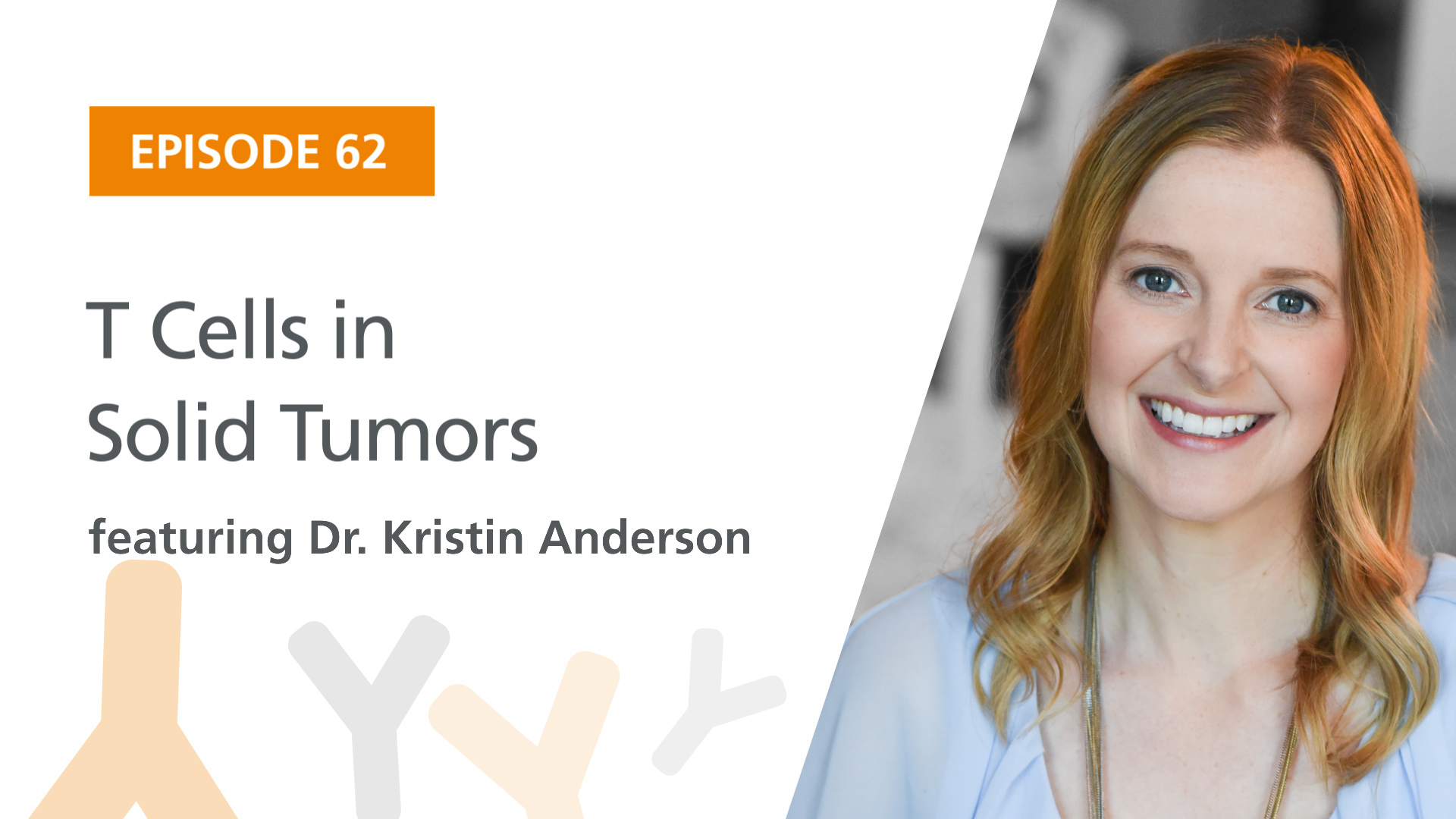
Guest:
Dr. Kristin Anderson is an Assistant Professor at the University of Virginia, where her lab focuses on engineering T cells to overcome immune suppression in the tumor microenvironment. She talks about how her cancer diagnosis changed her career focus, strategies for targeting ovarian cancer, and her transition from postdoc to professor.
Featured Products and Resources:
- Register now for IUIS 2023!
- Support the culture of human T cells and enhance your cell therapy development by using high-performance, cGMP-manufactured ImmunoCult
 -XF medium.
-XF medium.
The Immunology Science Round Up
Antibiotic Binding Site Mutations – Researchers studied the rifampicin binding site of E. coli RNA polymerase.
CRISPR Screens for Cancer – Scientists combined genome-wide CRISPR screens in target cancer cells to identify pathways that regulate γδ T cell killing and BTN3A cell surface expression.
Tissue-Resident T Cell Metabolism – Researchers explored the metabolic adaptations supporting differentiation, survival, and function of tissue-resident memory CD8+ T cells.
Towards a Universal CAR T Cell Therapy for Blood Cancers – Epitope-edited CAR T cells were effective against patient-derived acute myeloid leukemia, B cell lymphoma, and acute T cell leukemia.
Image courtesy of Dr. Kristin Anderson


